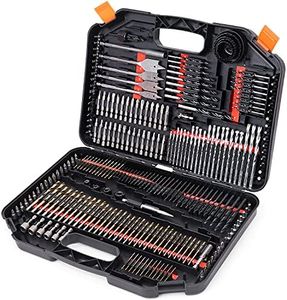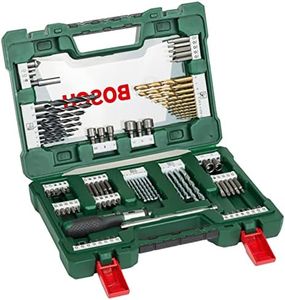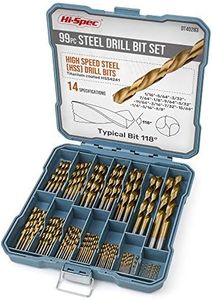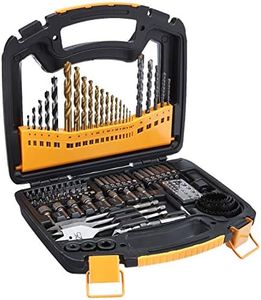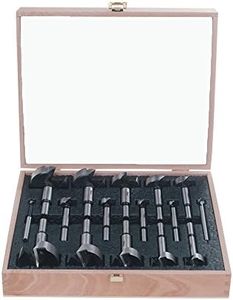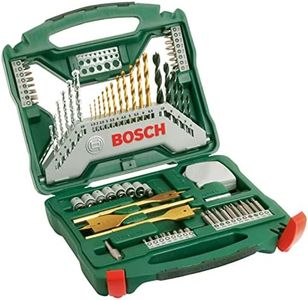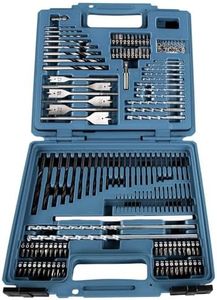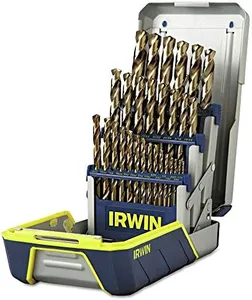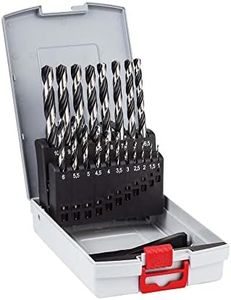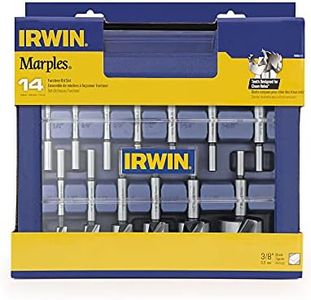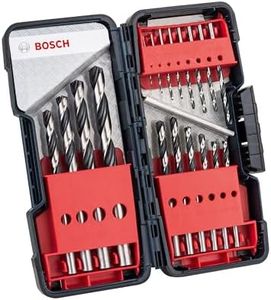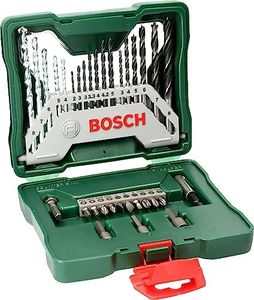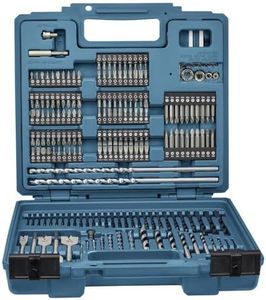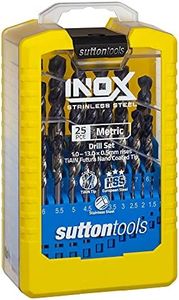We Use CookiesWe use cookies to enhance the security, performance,
functionality and for analytical and promotional activities. By continuing to browse this site you
are agreeing to our privacy policy
10 Best Drill Bit Sets
From leading brands and best sellers available on the web.By clicking on a link to a third party's website, log data is shared with that third party.
Buying Guide for the Best Drill Bit Sets
Choosing the right drill bit set can make your DIY or professional projects much easier, safer, and more effective. Drill bits are designed for different materials and tasks, so understanding what sets them apart will help you avoid damage to your tools and ensure clean, precise results. Before you buy, think about the kinds of materials you'll be drilling into most often, how frequently you'll use the bits, and whether you need a basic set for occasional household tasks or a more specialized collection for serious work.MaterialThe material of a drill bit determines what it can safely and effectively drill into. Common materials are high-speed steel (HSS), cobalt, carbide, and titanium-coated steel. HSS bits are great for wood, plastic, and light metals, while cobalt and carbide bits handle harder metals like stainless steel. Titanium coatings extend the life of bits when drilling in metal. To pick the right material, think about what you'll drill most; general home use with wood and plastic means HSS is fine, but regular drilling in metal calls for cobalt or carbide.
Bit Types IncludedDrill bit sets can include a wide range of bit types, such as twist, spade, masonry, and auger bits. Twist bits are all-purpose and best for metal, wood, and plastic. Spade bits work well for drilling large holes in wood, while masonry bits are needed for brick, stone, or concrete. Look at the types of jobs you expect to do, and make sure the set you pick covers those needs. For general repairs, a set with various twist and masonry bits covers most tasks, but you might want specialized bits for woodworking or construction.
Bit SizesA drill bit set’s size range determines the diameter of holes it can create. Sets usually come with bits ranging from very small (1/16 inch or 1.5 mm) up to larger sizes (1/2 inch or 13 mm), but the number of sizes and range can vary. If you need to make precise or varied holes, a set with many increments will be more flexible. For most household needs, a basic range is enough, but for projects needing exact fits, measure your project’s requirements and ensure the set covers those sizes.
Coating or FinishDrill bits can have different coatings, like black oxide, titanium, or diamond. These coatings increase durability, help reduce friction, and sometimes resist rust. Black oxide is long-lasting for general use, titanium increases wear-resistance and is good for extended use on metal, while carbide-tipped or diamond-coated bits handle harder materials. Coating choices depend on how often and on what materials you’ll use the bits. Occasional use on soft materials doesn’t need a premium coating, but regular metalwork does.
Storage CaseA good storage case keeps your bits organized, easy to find, and protected from damage or loss. Some sets come with well-labeled cases, while others may be simple plastic boxes. Consider how likely you are to lose small parts, or if you'll need to transport your set between places. If you prefer to keep everything neat, look for a set with a sturdy, organized case.
Compatibility (Shank Type)Drill bits have different shank shapes, such as round, hex, or reduced-shank. These determine which drills the bits fit into, as some drills accept only certain shank styles. Hex shanks prevent slipping in the drill chuck and are popular for quick-change systems. Round shanks are versatile and fit most drills. Make sure your drill and the drill bits match in shank style, or you may not be able to use them together.
